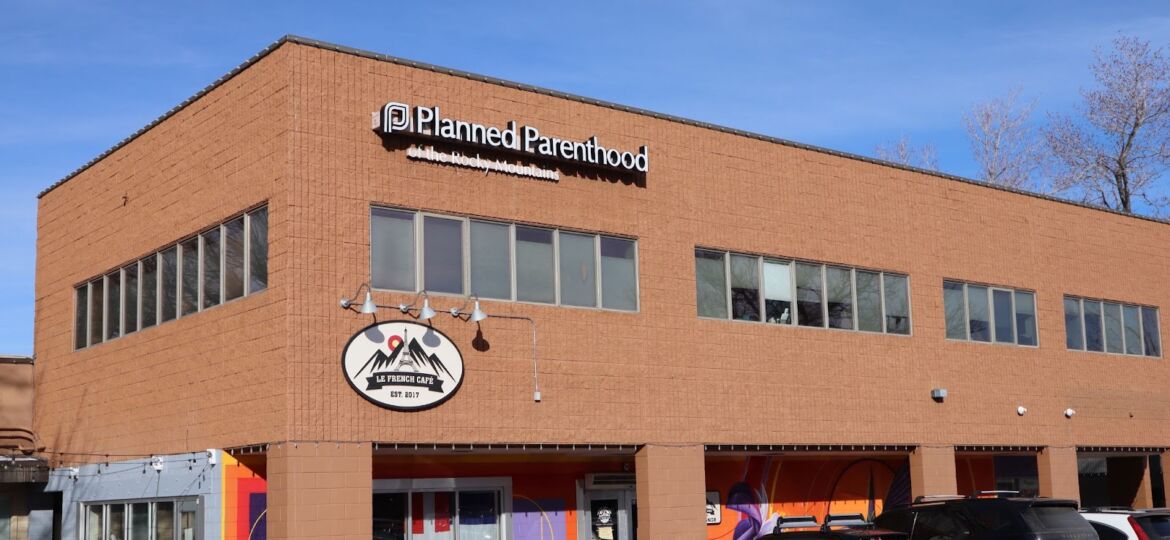
The future of abortion after the fall of Roe v. Wade
Post-Roe America is facing major abortion stigma

America is facing a continued political divide after the overturn of Roe v Wade; Roe v Wade placed reproductive decision-making alongside other fundamental rights.
The Center for Reproductive Rights defines the 1973 Roe v Wade U.S. Supreme Court ruling, which recognizes an individual’s right to abortion, as an advancement in gender equality in the United States.
According to Obstetrics and Gynecology, the Supreme Court overturned Roe v Wade on June 24, 2022 with the Dobbs v Jackson Women’s Health Organization ruling.
Almost 50 years later, people across the country have lost their fundamental right to bodily autonomy.
Despite this time of uncertainty, a general consensus of medical professionals, activists and experts is to do all they can to help to reduce stigma and expand abortion access.
“It unfortunately, wasn’t surprising, but that didn’t mean that it wasn’t a huge blow to people who had been doing incredible work for years to protect abortion,” New Era Colorado policy manager Arianna Morales said. “It was definitely hard. I remember that day very clearly.”
The Brazen Project is a Colorado-based youth-led initiative of New Era Colorado working to end abortion stigma on college campuses. One way they do this is by encouraging meaningful conversations at the Auraria campus (Metropolitan State University, Community College of Denver and University of Colorado Denver), Colorado State University in Fort Collins and the University of Colorado Boulder.
Morales oversees all local campaigns within the organization. She started as a manager of the Fort Collins cohort of the Brazen Project and has been involved with the organization for four years. She initially became interested in abortion access after taking a Chicano studies course in college and falling in love with her identity as a Chicana. As a woman of color from a family that experienced unplanned pregnancies, the topic hit close to home for Morales.
The Century Foundation says that Colorado was the first state to decriminalize abortion. In April 2022, the Reproductive Health Equity Act was signed. This ensured the legal right to abortion and contraception in state law.
According to the Denver Post, the overturn of Roe v Wade did not sit well with Coloradans. Following the release of the ruling, hundreds of people protested outside the state Capitol. Colorado officials also voiced their concerns about the decision.
After signing an executive order protecting access to reproductive health care in Colorado, Governor Jared Polis discussed his opinion on the topic. Polis said that he was taking needed action to protect individual freedom and the privacy of Coloradans. Polis’ actions also protected people coming to Colorado from other states who may be prosecuted for their healthcare decisions.
One state with extreme abortion restrictions is Texas. According to The Texas Tribune, it is the most populated state to restrict abortions. The newest trigger law makes abortion a felony punishable by up to life in prison. A trigger law is a law that goes into effect when an event or condition occurs. The law criminalizes abortion from the moment of fertilization with the only exception being if the patient is facing a life-threatening condition caused by the pregnancy.
“I didn’t necessarily realize the immediate trigger ban that would happen in Texas,” University of Colorado Boulder transfer student Catherine Morse said. “When it happened I was petrified.”
Morse is from a town south of Houston called Pearland. She describes the political climate there as extremely conservative.
“Everyone grows up hearing what their parents believe,” Morse said. “So they don’t really think to educate themselves in their own individual aspect. So everyone kind of just follows each other and follows the leader.”
Texas Governor Greg Abbott has made his position on the topic clear. The Texan reports that Abbott’s goal is to “protect the lives of those babies.”
Multiple states bordering Colorado do not have abortion protection. Because of this, many out-of-state residents are traveling to Colorado in search of care. This is causing a rush of people coming to the state. CPR reports as of September 2022 that 2,477 people have come to Colorado for abortion care. This is almost 1,000 more people than Colorado saw in 2019.
Stigma is a major contributor to abortion bans. According to Morse, there was hardly any discussion about abortion and other reproductive topics in school.
“I never actually learned in an educated setting about abortion,” Morse said. “I don’t feel like they want to even discuss the topic. There’s kind of a toxic cloud over the discussion of really anything to do with things like women’s health.”
Along with stigma, the cost of abortion is another barrier. The Colorado Cobalt Fund provides financial assistance to reduce the cost of termination. The fund does not discriminate and helps who they can, regardless of their reasons. It is a welcoming and safe resource for care in Colorado.
“One of the ways we help people in different states is by getting the word out about the abortion fund. Through that abortion fund they can help fund people who are seeking access to an abortion,” Morales said. “There is a lot of unknowns with the fall of Roe happening this year.”
The Cobalt Fund is part of a greater network. The National Network of Abortion Funds (NNAF) is a national resource that connects people to help. The network’s mission is to “remove logistical and financial barriers to abortion access.” They strive to make abortional affordable and accessible to everyone.
“Every person has the non-negotiable human right to determine whether, when and how to create a family,” the NNAF website says. “As we shift the conversation about abortion, it will become a real option, accessible without shame or judgment.”
NNAF’s site offers a variety of resources to those in need. This includes legal help, information, local assistance and more. The network is funded by generous donors who care about abortion access.
Since the need for abortion is so high, NNAF and the Cobalt Fund are unable to cover the entire cost of an abortion.
“Abortion isn’t funded by any federal or state mechanisms and it can be pretty expensive,” Morales said. “But right now there’s not a ton of state support when it comes to paying for those abortions.”
One way to raise funds is to reduce stigma and educate more people on the issue. The Brazen Project reduces abortion stigma on college campuses by facilitating peer-to-peer conversations.
“While people were walking by we started asking them, ‘do you support abortion access?’ It got people to stop and think about it, to want to have a conversation about it,” Morales said. “If they did, it got people really excited to hear that there was someone asking them about abortion.”
Encouraging conversation about abortion has helped reduce stigma in the past. In an essay, Michelle Mueller discusses abortion activism at Cal Poly in the 1970’s. The essay has examples of some strategies that could be used to bring back federal abortion protection.
“Cal Poly students approached activism in a less obvious fashion: on-campus discussions, forums and student editorials on the topic of abortion,” Mueller said. “Cal Poly students led open discussions with local community health officials, students and professors on the moral and ethical dilemmas of legal abortion.”
Soon after Cal Poly opened up the conversation, the Supreme Court decision about Roe v Wade was finalized and abortion became federally protected.
One of the issues surrounding reproductive health rights is stigma, especially in conservative states.
“Yeah, there is absolutely a stigma,” Morse said. “They feel so uncomfortable talking about it that they won’t actually have the discussion.”
People can help destigmatize abortion by speaking out and combating misinformation. Jessica Duggan, a community educator with Planned Parenthood, writes that social media outlets such as TikTok can be used to educate people about abortion. Users of the app can correct misinformation and learn from one another. Apps like TikTok are potential educational tools that can open the lines of communication.
Medical professionals are also trying to reduce stigma. Obstetrics and Gynecology is encouraging all professionals to talk to their community, patients, and colleagues about abortion care as a requirement for safe and autonomous reproductive health.
Data from Obstetrics and Gynecology says that 95% of obstetrician-gynecologists (OB-GYNS) support abortion and claim that they would provide care, even if it conflicts with their personal values.
Even with OB-GYNs informing their communities and organizations like The Brazen Project reducing stigma, care still is not easily accessible for everyone in Colorado.
“Abortion providers in Colorado mainly exist in more populated areas,” Morales said. “Rural areas don’t have a ton of abortion providers. Which means that people need to take time off to be able to get to an abortion provider, which could mean losing pay.”
According to The Century Foundation, there are 1.4 million people in Colorado of reproductive age – this number of people could need access to an abortion at any point. This number does not include those needing assistance from neighboring states with restricted access.
Currently, 80% of counties in Colorado lack access to an abortion provider.
Although abortion is protected in Colorado, there are still restrictions on it. The Century Foundation says that there is currently a ban on using Medicaid for abortion and parental consent forms are required for minors who need to terminate a pregnancy.
Reducing stigma and state restrictions on abortion may help solve some of the issues surrounding abortion. If states like Colorado expand abortion access, they may be able to help more people from states with harsh restrictions.
“I’m really proud of the work that abortion advocates in this state have done,” Morales said. “I’m also really excited to see how we continue to make abortion more accessible for people.”

